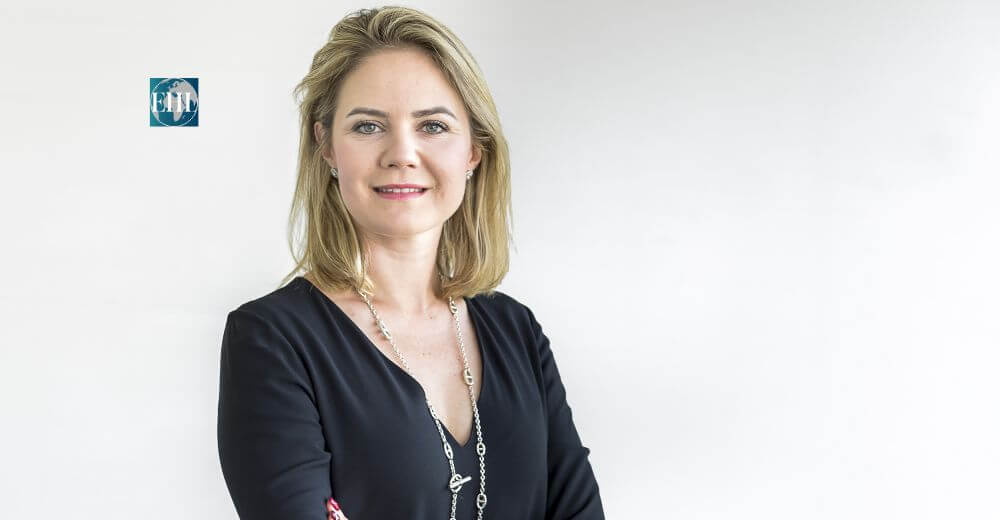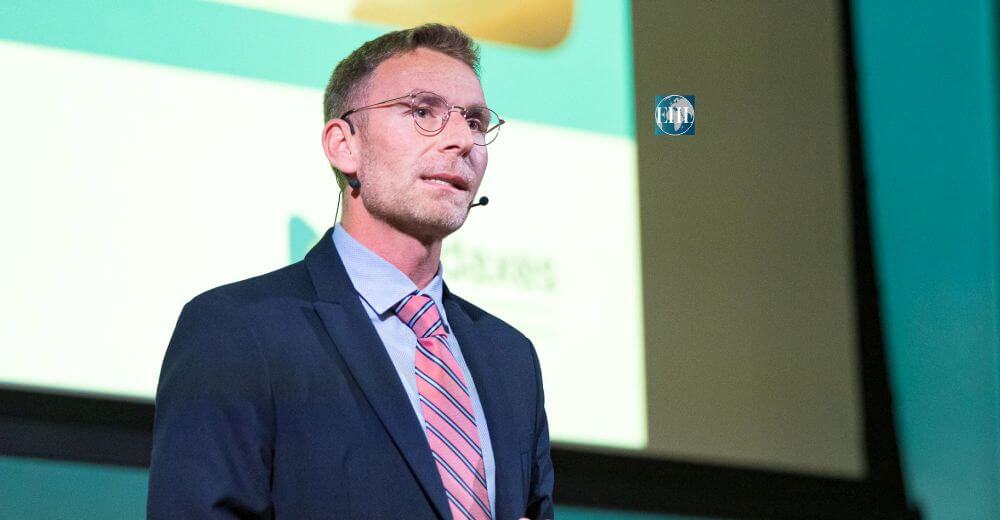Pharmaceutical advancements, from novel drug discoveries to tailored therapies, drive transformative change, addressing unmet medical needs and offering hope to patients. These breakthroughs, born of scientific ingenuity, alleviate suffering, extend lifespans, and enhance quality of life, marking profound progress in healthcare.
Surrounded by these transformative pharmaceutical advancements stands Erik Vahtola, Chief Medical Officer (CMO) of Active Biotech AB. With a distinguished background in oncology and pharmacology, Erik’s journey signifies the fusion of clinical expertise and pharmaceutical innovation. As the CMO of Active Biotech AB, Erik’s strategic vision and steadfast commitment to advancing healthcare solutions have positioned the company at the forefront of innovation.
Let’s get into the interview highlights as we explore Erik’s impactful journey, his insights into the evolving pharmaceutical industry, and the pioneering strides being made by Active Biotech AB under his guidance!
Can you tell us a bit about your background and how you came to be the Chief Medical Officer at Active Biotech?
I am a physician with a PhD in pharmacology and a Master’s degree in cell biology. Before joining the pharma industry, I was working as a resident oncologist at the Helsinki University Central Hospital in Finland, whereafter I’ve worked in various roles in pharma from early clinical development to late stage and medical affairs. In late 2022 I was offered a position as CMO at Active Biotech at a stage when the company was initiating several clinical studies. The company had recently shifted from inflammatory and neurodegenerative diseases and prostate cancer to focus on hematological malignancies and eye diseases. Knowledge in the basics of disease biology and the treatment of cancer patients and an overall insight into the lifecycle of a drug from preclinical to regulatory approval worked in my favor for this interesting position.
What have been some of the key accomplishments and milestones in your career as a medical professional?
It has been a long learning curve to be able to work in the position I am in today. And I think all previous experiences, successes and failures, have helped my career as a medical and pharma industry professional. But to highlight a particular achievement I would like to share an interesting case we had in my previous role. Our company worked together with a hospital biobank to gather information on the frequency of rare genetic mutations in cancer patients in the context of biomarker-driven drug development. The data, which was presented at a scientific conference, showed the utility of using vast amount of data stored in biobank samples to support drug development and calculate the accurate number of patients with rare genetic mutations. In more general terms I would like to highlight the recent achievements of our small but experienced and capable team here at Active Biotech. During the last two years we have been able to initiate three clinical trials with internationally recognized sites in therapeutic areas with high medical need despite the hurdles of financing in the biotech sector.
How have you seen the pharmaceutical/biotech industry evolve during your time as a CMO, and what are some of the biggest challenges you’ve had to navigate?
Investment into the biotech sector has been in turmoil ever since the covid-19 pandemic. A surge of investment during 2021-2022 was followed by sharp decline which has not recovered to the pre-pandemic era. During the last couple of years an unprecedented amount of companies have failed to secure financing with some indication that the worst could be over in 2024 (https://www.globaldata.com/media/pharma/biotech-funding-recovery-horizon-2024-says-globaldata/). Drug development is expensive and filled with risks. Active Biotech has had the advantage of committed shareholders with the capability for long-term financing needed to advance our projects. In order to secure continued investment and to attract new investors, we as a publicly listed company need to deliver on advancing the clinical projects and keep shareholders informed on the advancements. This requires seamless collaboration with busy clinical investigators and to convince them to prioritize our studies.
As the CMO of Active Biotech, what are some of the top priorities and focus areas for you and the company?
Speed and agility without losing strategic focus is of importance in the competitive drug development sector where several companies share similar ambitions and strive to attract the same stakeholders. By being a small company, we are forced to prioritize, and we have turned this to our advantage by focusing on the things that matter most and bring most value. For our prioritized lead asset, tasquinimod, we are focusing on driving two clinical trials in myelofibrosis, a rare hematological malignancy, to proof-of-concept in patients. Tasquinimod, which targets immunosuppressive cells in the tumour microenvironment, holds promise in a range of hematological malignancies. Through the collaboration with high-profile academic and clinical researchers the studies are designed to answer the most important questions for the next stage in clinical development. The data from the studies will be used to attract partners for the clinical phase III development ultimately aiming for regulatory approval. In addition, we need to secure timely supply of study drug to the study sites and responding to queries regarding study documentation from authorities.
From your perspective, what are some of the most exciting or promising areas of medical research and development right now?
The concept of personalized medicine in oncology drug development has been a trend for the last 20 years since the breakthrough finding of a biological subtype in breast cancer called HER2-positive breast cancer. HER2-positive breast cancer was previously associated with poor prognosis but the development of a diagnostic test and HER2-targeted treatment (trastuzumab) led to an increase in the rate of patients being cured from their disease. With more in-depth understanding of cancer biology and new technologies the trend has evolved into tailoring treatment based on an individual patient’s tumor by e.g. CAR-T cells. We see a range of other modalities which aim to make cancer treatment even more personalized. Following the advances in oncology drug development, other therapeutic areas such as neurology and cardiovascular diseases are embarking on this road.
Where do you see the role of the CMO evolving in the years ahead as the healthcare landscape continues to change?
Increased pressure on drug prices, complexity of clinical study designs, evolving regulatory guidelines for drug development and stratification of patient populations into even smaller subtypes are trends which impact the CMO role in everyday work. A CMO needs to stay updated with initiatives that impact current clinical study designs including dose optimization (FDA:s project OPTIMUS) and accelerated approval (FDA:s project FRONTRUNNER). To integrate the initiatives into clinical studies is crucial for further development of the drug. Market access and price negotiations are becoming more and more crucial for reaching the market with a new drug. In this setting the CMO needs to be surrounded by a team of scientific and medical professionals to be able to convince pricing bodies of the validity of the data justifying the price.
What advice would you give to aspiring medical professionals looking to make an impact in the pharmaceutical industry?
The CMO role involves aligning company strategy with the voice from the clinicians and patients to develop novel treatments in diseases with high unmet need. The aims are not in conflict and the CMO role is a crucial part in a clinical-stage pharma/biotech company ensuring that the voice of the patient is heard within the organization. Further, as medical professionals it is our duty to protect the safety of patients in our clinical trials and after marketing approval. When developing new treatments, there will always be a need for clinicians with an understanding of disease biology, practical knowledge on current treatment alternatives and the complexities of the healthcare system.









